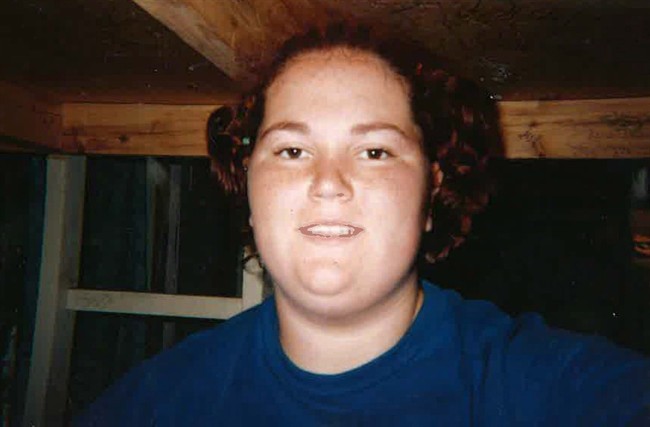TORONTO – The former deputy warden of a prison in which a teenager killed herself denied on Thursday putting her own career aspirations ahead of the inmate’s well-being.

In a second day of testimony, Joanna Pauline said she was following orders from higher-ups in directing guards to stay out of Ashley Smith’s cell unless the inmate was in medical distress.
It was important, she said, that everyone followed the management plan for the disturbed teen – which involved withdrawing warmth and privileges if she was acting out – as well as adhering to prison policies and procedures.
Asked if the approach was misguided, Pauline demurred.
“Ashley is dead,” Pauline said. “The plan didn’t work.”
Pauline also denied a guard had warned her in the days before Smith died that the cell-entry directive was “unlawful” and “stupid.”
Smith, 19, of Moncton, N.B., choked herself to death in her segregation cell at Grand Valley Institution in Kitchener, Ont., in October 2007, as guards stood and watched.
Despite increasingly frantic concern among the officers that Smith would strangle herself, Pauline had sent underlings numerous memos critical of them for going into the cell to save the inmate.
As a result of the memos, guards have told the inquest into the tragedy that they became increasingly reluctant to enter Smith’s cell, even when she was turning blue or purple from ligatures around her neck.
“I didn’t realize that’s what I was doing,” Pauline said.
“The intent of the direction was to ensure compliance with policy and procedure.”
Four days before Smith died, the prison psychologist warned Pauline that the inmate had become severely suicidal.
That same night, Pauline told a prison manager worried that Smith would kill herself on his shift to stay the course.
“I didn’t have that authority to discontinue the plan,” she testified.
Howard Rubel, the lawyer representing the guards’ union, said prison management’s bureaucratic mindset blinded them to Smith’s dire situation.
“We have the triumph of organizational policy over common sense and human decency,” Rubel told the hearing.
“I’m not going to say there was no common sense,” Pauline responded. “We were trying.”
In July 2008, police investigating the death ahead of charging four guards criminally – the charges were later dropped – asked Pauline why officers had hesitated to go into Smith’s cell.
She made no mention of the memos or disciplinary action taken against the guards.
“I don’t know. I thought to myself: what were they thinking?” she told the investigating officer.
“You were throwing (the guards) under the bus, weren’t you?” said Smith family lawyer, Julian Roy.
“No. I am human and I’m not perfect, but I certainly cared deeply for them.”
The inquest has heard how regional and national headquarters were unhappy with the number of incidents involving Smith, and prison’s senior management felt the need to minimize the situation.
Pauline said she told police Correctional Service Canada was positioning itself to deflect blame for Smith’s death because she felt “very betrayed” by the organization and she would be scapegoated.
She admitted saying the number of incidents in which guards used force on inmates were considered a “performance measure” for the warden and deputy and could have affected management bonuses.
The pressure led to a change among guards, who at first would go in immediately when they saw Smith with a ligature around her neck.



Comments